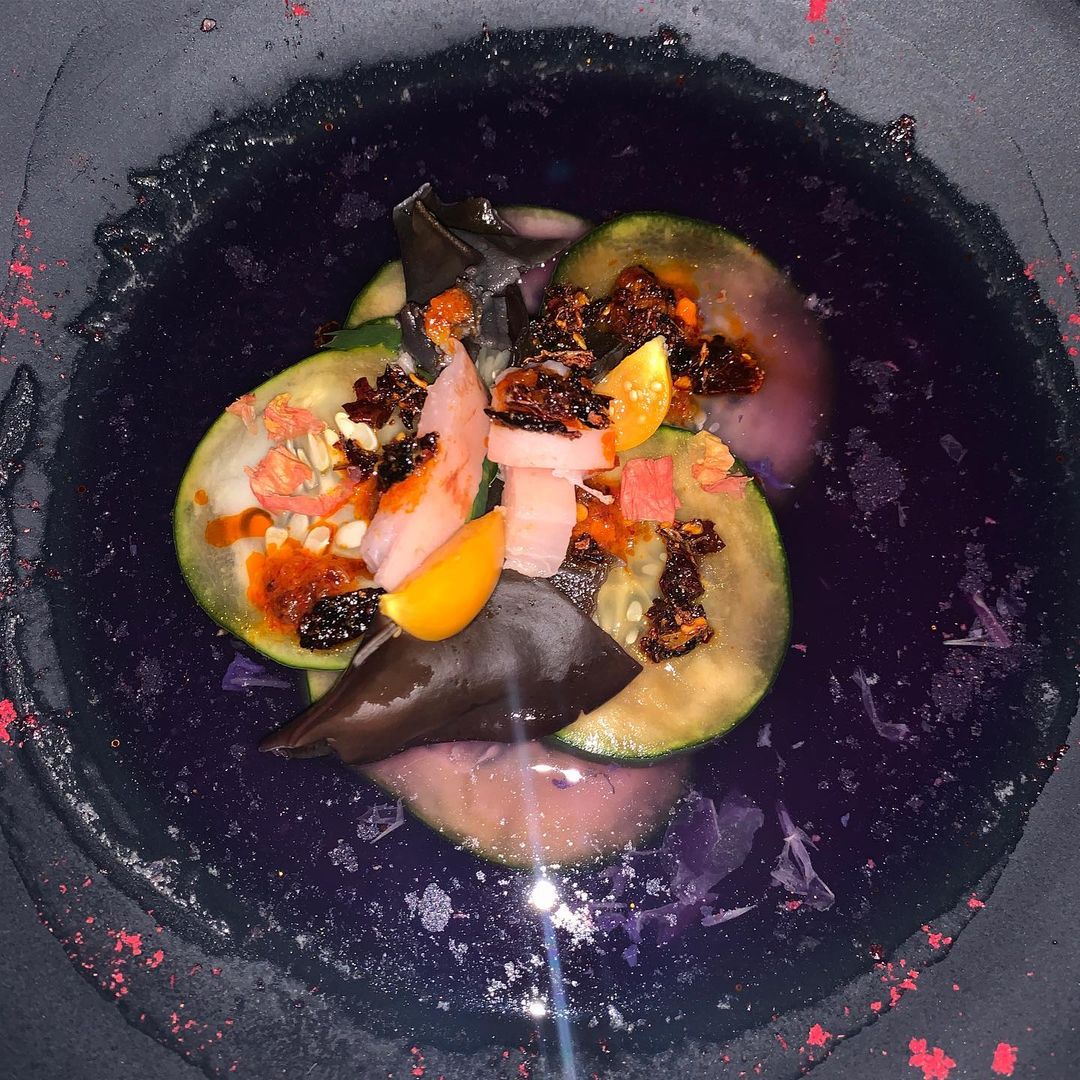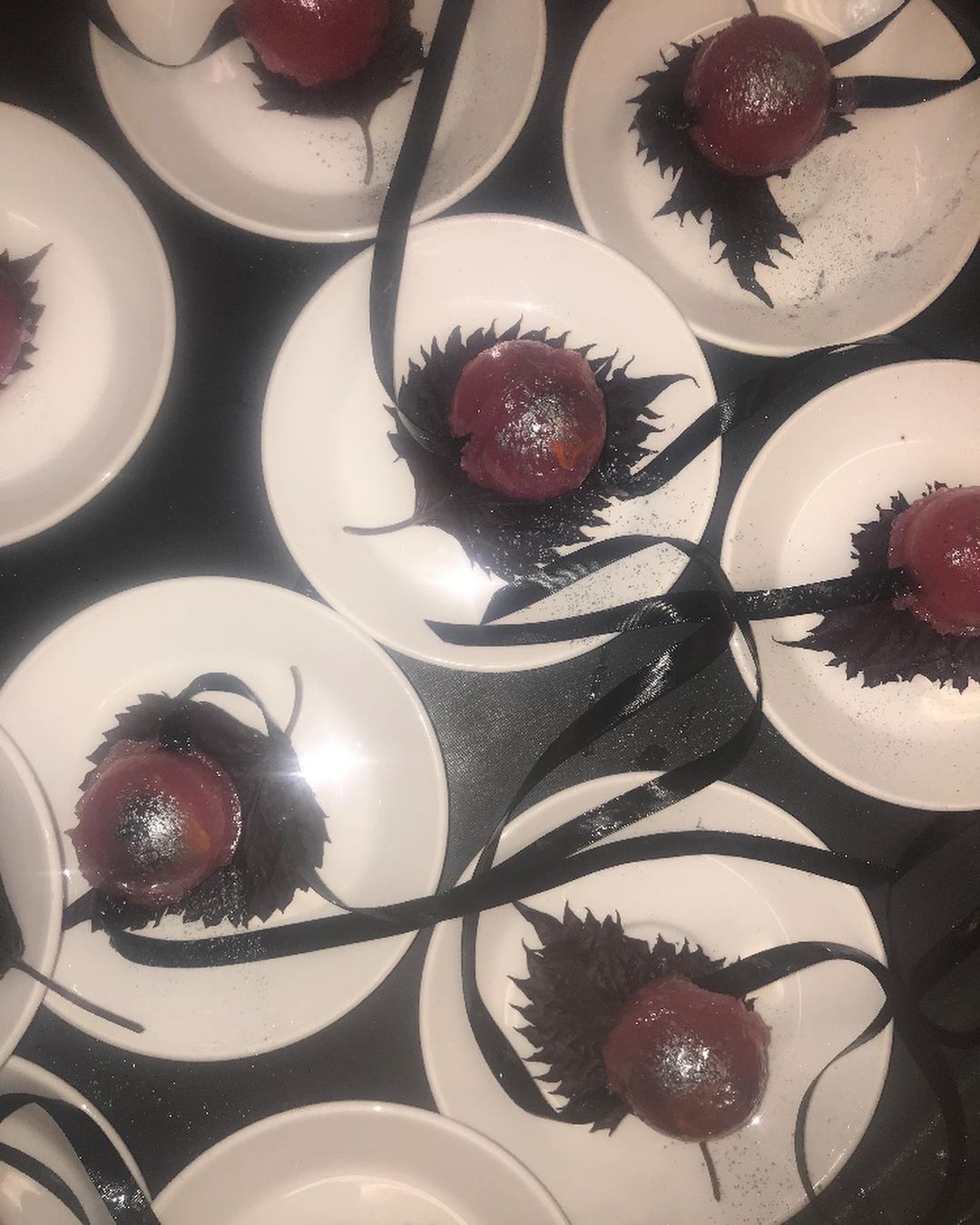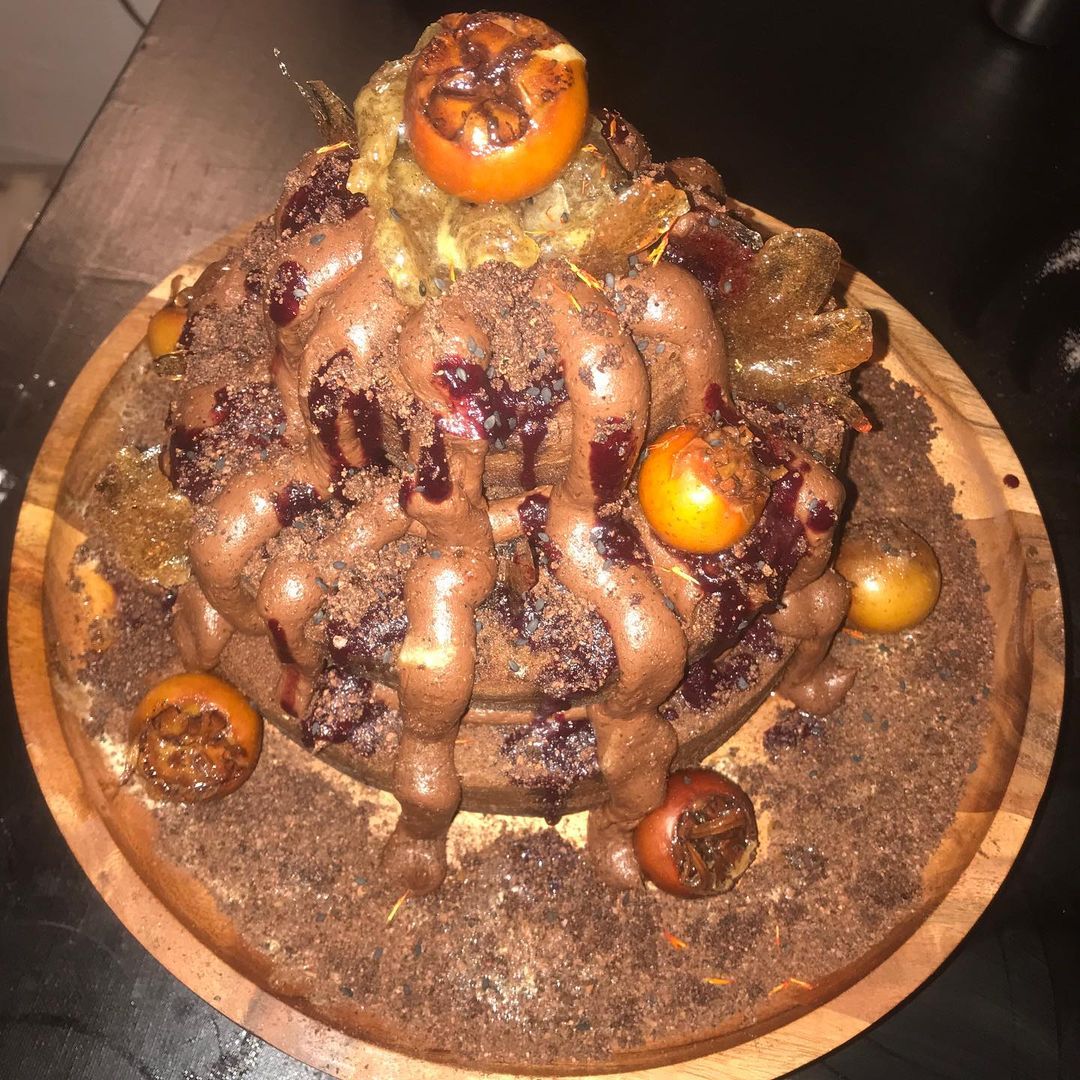Interview: Spiral Theory Test Kitchen On The Limitless Possibilities Of Food
By Something CuratedHelmed by New York-based artists Bobbi Salvör Menuez, Quori Theodor, and Precious Okoyomon, Spiral Theory Test Kitchen (STTK) was born a little over a year ago. The collective has swiftly established a cult following for their opulent and theatrical dinner parties, at which guests are confronted with extraordinary edible innovations spanning Nigerian cassava poached in Sichuan peppercorn butter, served over a coriander labneh and topped with burnt ghost pepper croutons, or a rose-water aspic suspending a flurry of stringy corn fibres, spilanthes, and lovingly scooped papaya spheres. Experimenting with colour, texture and form, via a breadth of processes from fermentation to fruit carving, STTK’s work challenges expectations of what a shared meal can be.

Expanding on their beginnings, STTK tell Something Curated: “Spiral Theory, as it lives now, was certainly not out of design. We love to cook, and all three of us have used food heavily in our art practices for a long time. So it seems obvious now, but we actually fell upon it accidentally. The name started at first when Precious wanted to make a zine with Bobbi with this title, like a personal-theoretical poetic thing, but it quickly moved beyond that. The name then became a band with other close friends which was very funny because none of us considered ourselves musicians and we kept getting offered gigs, again which seemed strange at the time but now feels like divine ordinance. We’re always cooking with and for friends and it just folded into the affect of that time of our lives until it blossomed more intentionally as a food project.”
Reflecting on philosophical, and inevitably very personal, themes like existential angst and food-related fears, each of STTK’s dinners tangentially explores a central concept selected by the collective. The meals strive to create a forum for guests to face these matters in an open-minded space. “There is no single approach we take to food and eating. I think we have a foundational understanding that food sustains our life in a very literal sense and eating is one of the first experiences we have of the social realm and of culture. With that in mind, anything is possible. Our approaches then become as infinite as the individuals eating and making the food, as wide as the field of memory, as vast as our imaginations will allow. We try to step aside and let the unique mix of what flows from our own histories and aspirations emerge,” STTK explain.

As the only non-vegetarian in the collective, Okoyomon oversees preparations of the trio’s carnivorous dishes. Having relocated to the US from Nigeria as a child, their love of meat is largely influenced by a youth spent in the kitchen of their family’s Lagos restaurant and trips to their grandmother’s farm in Ikoyi. Theodor, whose meticulousness and creativity lends itself ideally to pastry-making, attended cooking school while studying critical theory at university. And Menuez, a performance artist and curator concerned with the idea of illusion, investigates how aesthetic context impacts the brain’s perception of food, engineering STTK’s jellies and fermentations, while considering how colour and form can most effectively communicate a meal’s theme.
Earlier this year, ahead of New York designer Telfar Clemens’ Autumn/Winter 2020 show at Florence’s Pitti Uomo, a fantastical banquet, masterminded by STTK, took place at the Palazzo Corsini for friends of the brand. Among the dishes on offer, diners were presented with an intriguing and much-Instagrammed palate cleanser of edible ball gags comprised of pomelo-infused spherical ices, fastenable with embedded black leather ties. Fried fish bones and a jellylike dish called “rain” came served on compact discs, and appetisers including miso semifreddo with fermented yuzu rind and wild Madagascar pepper were fed to guests via latex-gloved hands that appeared from a glory-hole-like installation.

Offering insight into how the Telfar project unfolded, STTK tell Something Curated, “The Telfar dinner was truly a collaboration. Babak [Radboy], Telfar’s creative director, had come with his child and partner to a very special dinner we did upstate. The dinner unfolded slowly, with the accompaniment of our friend Marc Armitano Domingo playing a 17th C string instrument inside a massive consummation bed with many many dishes, one served on antique gurney, another served on massive ceramic flowers. By the end of the evening all the dishes were laid out in all their dismantled glory, with bones and sweets and smoke-filled vessels and a giant hand written scroll of a poem-menu and all the dogs running and barking around the debris.
To which Babak responded with this writing:
It occurred to me that I need to write a prayer or vow of friendship:
When I talk about my body – I’m talking about my life. I’m talking about my real life. I’m talking about my blood and rivers of blood and bloodshed. A good name for a space.
So let’s call this space bloodshed.
How do you travel to a place that doesn’t exist? You do it through time.
Not the kind you spend – but the kind you make. Repeat after me: Time makes time. Time takes space. Space takes bloodshed.
The world isn’t everything.”
Celebrating the boundless possibilities of food as a means to shift personal outlooks and broaden horizons, when it comes to eating as well as our relationships with one and other, Menuez, Theodor and Okoyomon’s collaborative practice luxuriates in the seemingly outlandish, bringing a new sense of intrigue and optimism to the shared meal.
Words by Keshav Anand / Feature image courtesy Spiral Theory Test Kitchen